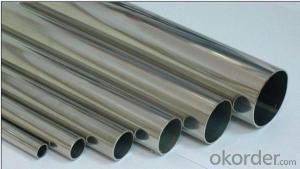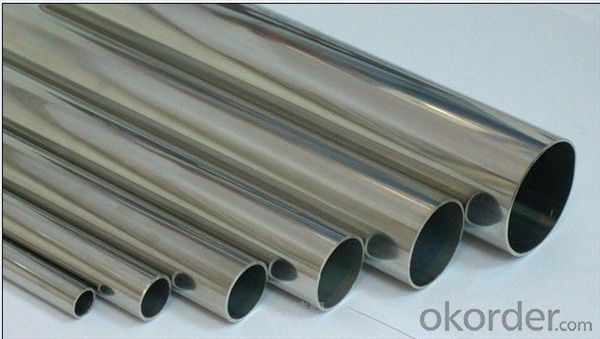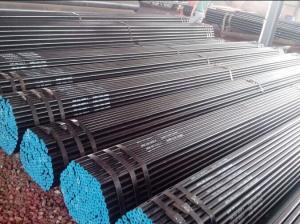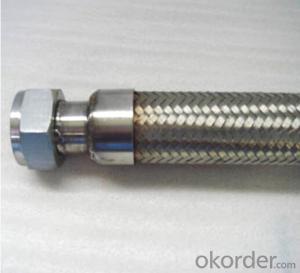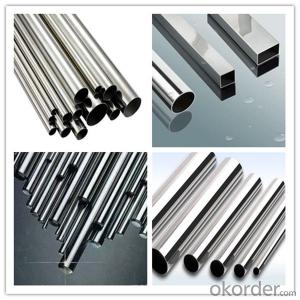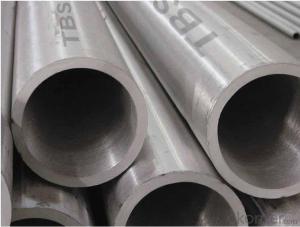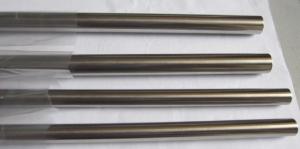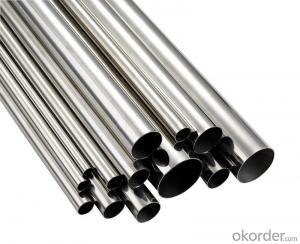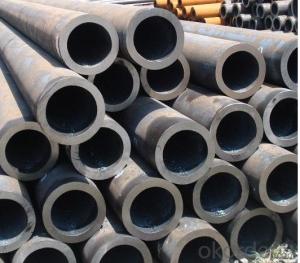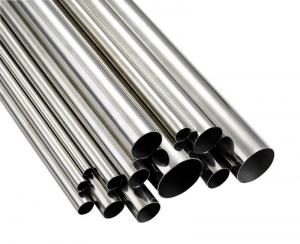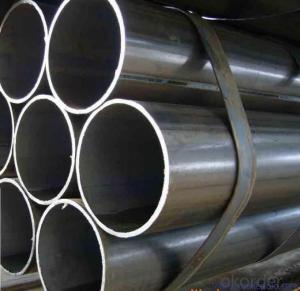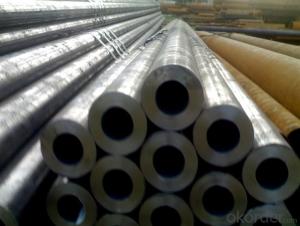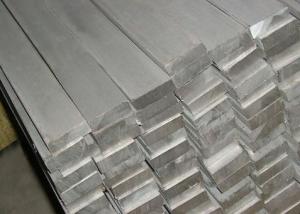P22 Seamless Ferritic Alloy-Steel Pipe for High-Temperature
- Loading Port:
- Shanghai
- Payment Terms:
- TT OR LC
- Min Order Qty:
- 1000 kg
- Supply Capability:
- 10000 kg/month
OKorder Service Pledge
OKorder Financial Service
You Might Also Like
Product particular communication:
1) Size: OD > 6.35 mm & Thk > 0.89 mm ;
2) Tight tolerance, Smooth surface, Uniform mechanical property(Mechanical Properties equilibrium) ;
3) Heat treatment: BK, BKS, GBK, NBK,Stress Relief, Normalizing, Spheroidize Anneal, Annealing, Bright Annealing, Normalized, Quenched and Tempered, Solution Annealing, etc ;
4) Continuous stenciling as required ;
5) Rust prevention treatment, such as: immersion oil, lacquer, passivation, phosphating,etc;
6) Plastic plugs or caps on both ends as required ;
7) Packaging: Hexagonal bundles of max. 1,500kg with several steel strips, Wrapped in waterproof paper, PVC sleeve,and sackcloth with several steel strips or packed in heavy tri-wall boxes, wooden boxes, wooden slats as requires;Type: Round , Square, Rectangle, Hexagon. Streamline, etc;
ASTM A335 Seamless Alloy-Steel Pipe
Standard: BS 1139, BS 3059-2, JIS G3454-2007
Grade: 10#-45#, 15NiCuMoNb5, 10Cr9Mo1VNb
Detailed introduction to ASTM A335 seamless alloy steel pipe:
ASTM A335 seamless alloy steel pipe
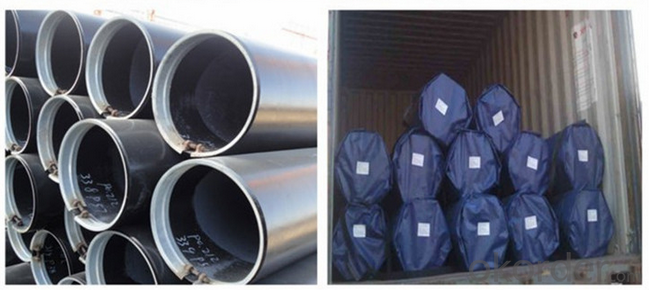
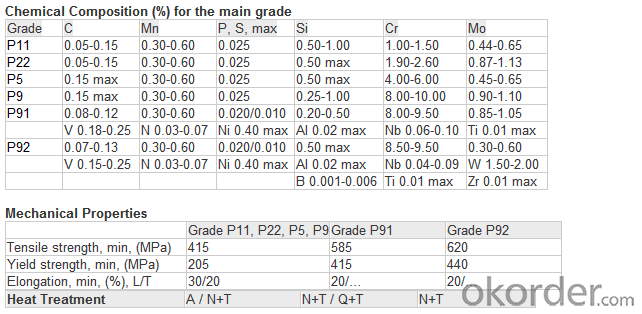
FAQ:
1) why you chose us ?
Professional Manufacturer and supplier of Steel pipe
More than 14 years’ professional producing experience
We can get the lowest ex-factory prices. The price are quite reasonable and it is lower than our commercial peers. also, we can guarantee the qualities of our products.
BV, ISO certificates and SGS test can be provided to assure the quality of our products.
2) Our minimum order quantity:
10 Metric Tons or one 20ft or 40ft Container.
3) How about the Delivery Time?
The steel pipe will be produced since we getting your deposit by T/T or Your original L/C. For normal size, some stocks in our factory now, we can supply once you need.
4)What kind of payment does your company support?
T/T, 100% L/C at sight, Cash, Western Union are all accepted.
5) Do you charge for the samples?
According to our company principle, we just charge for samples, you pay for the freight /courier charge.
6) Main market:
Mid East, South America, Africa, Southeast Asia, India etc
- Q: What are the factors to consider when selecting a stainless steel pipe for a specific application?
- When selecting a stainless steel pipe for a specific application, there are several factors to consider. These factors include the required corrosion resistance, temperature and pressure requirements, the type of fluid or gas being transported, the pipe size and thickness, the desired strength and durability, and any specific industry standards or regulations that need to be followed. Additionally, the cost, availability, and ease of installation should also be taken into account. Overall, it is important to carefully evaluate these factors to ensure that the chosen stainless steel pipe is suitable for the intended application.
- Q: What are the different types of stainless steel pipe supports?
- There are several different types of stainless steel pipe supports that are commonly used in various industries and applications. These include: 1. Adjustable pipe supports: These supports are designed to allow for easy adjustment of the pipe's position or height. They often feature a threaded rod or a telescoping design that can be extended or retracted to accommodate different pipe sizes or installation requirements. 2. Pipe hangers: These supports are used to suspend or hang pipes from overhead structures. They typically consist of a metal bracket or clamp that is attached to a beam or other structural element, and a hanging rod or strap that supports the weight of the pipe. 3. Pipe clamps: These supports are used to secure pipes to walls, floors, or other surfaces. They typically consist of a metal clamp that wraps around the pipe and is attached to the surface with screws or bolts. Pipe clamps can be adjustable or fixed, depending on the specific application. 4. Pipe saddles: These supports are used to cradle or support pipes on horizontal surfaces. They typically consist of a U-shaped metal bracket or saddle that is attached to the surface, and a cushioning material such as rubber or neoprene that helps to prevent damage to the pipe. 5. Pipe guides: These supports are used to guide or control the movement of pipes, particularly in applications where thermal expansion or contraction is a concern. They typically consist of a metal bracket or guide that is attached to a fixed structure, and a sliding or rolling element that allows the pipe to move while maintaining its alignment. Each type of stainless steel pipe support has its own specific advantages and is designed to meet different installation requirements. The choice of support will depend on factors such as the pipe material, size, weight, and the specific needs of the application.
- Q: What does "stainless steel pipe" DN mean?
- DN is nominal diameter, nominal diameter (or nominal diameter), that is, all kinds of pipe and pipe accessories of universal caliber. The pipes of the same nominal diameter can be connected with each other and are interchangeable. It is not the outer diameter or inner diameter of the pipe in actual sense, although its value is close to or equal to the diameter of the pipe;
- Q: Are stainless steel pipes suitable for underground heating systems?
- Indeed, underground heating systems can employ stainless steel pipes as they possess suitability. The reason lies in the fact that stainless steel exhibits remarkable resistance against corrosion and can endure the severe circumstances of subterranean burial. Moreover, this material showcases durability, longevity, and the ability to withstand elevated temperatures and pressures, rendering it an exemplary option for heating systems. Not only that, but stainless steel pipes also offer ease in installation and maintenance, thereby furnishing a dependable and effective resolution for underground heating systems.
- Q: Does stainless steel pipe belong to hardware?
- Belong to. Hardware: refers to gold, silver, copper, iron, tin, five metal materials called. Stainless steel pipe is a kind of hollow long strip round steel.
- Q: What is the difference between Sch 40 and Sch 80 stainless steel pipes?
- Sch 40 and Sch 80 stainless steel pipes differ in their wall thicknesses. Sch 40 denotes a pipe with a "Schedule 40" wall thickness, while Sch 80 refers to a pipe with a "Schedule 80" wall thickness. The schedule number signifies the approximate wall thickness of the pipe, with higher numbers indicating thicker walls. When it comes to stainless steel pipes, Sch 80 has a greater wall thickness compared to Sch 40. The variation in wall thickness leads to disparities in pressure rating and strength. Sch 80 stainless steel pipes are engineered to withstand higher pressure and are generally employed in applications where the pipe must endure heightened levels of stress or extreme conditions. Conversely, Sch 40 stainless steel pipes are typically used in less demanding situations where lower pressure ratings are acceptable. Furthermore, the increased wall thickness of Sch 80 pipes results in a smaller internal diameter in contrast to Sch 40 pipes. This reduction in internal diameter can affect the flow rate of fluids or gases through the pipe, so it is crucial to take this factor into account when selecting the appropriate pipe for a specific application. To summarize, the primary distinction between Sch 40 and Sch 80 stainless steel pipes lies in their wall thickness. Sch 80 pipes are thicker and capable of handling higher pressure and stress levels.
- Q: How do you calculate the heat transfer coefficient of stainless steel pipes?
- The heat transfer coefficient of stainless steel pipes can be calculated using various methods, including empirical correlations and theoretical calculations. One commonly used empirical correlation is the Dittus-Boelter equation, which relates the heat transfer coefficient to the Reynolds number and Prandtl number. The Dittus-Boelter equation is given by: Nu = 0.023 * Re^0.8 * Pr^0.4 Where Nu is the Nusselt number, Re is the Reynolds number, and Pr is the Prandtl number. The Nusselt number represents the ratio of convective to conductive heat transfer and is dimensionless. To calculate the Reynolds number, use the following formula: Re = (ρ * v * D) / μ Where ρ is the density of the fluid, v is the velocity of the fluid, D is the hydraulic diameter of the pipe, and μ is the dynamic viscosity of the fluid. The Prandtl number can be determined using the following equation: Pr = μ * Cp / k Where Cp is the specific heat capacity of the fluid and k is the thermal conductivity of the fluid. Once the Reynolds and Prandtl numbers are determined, substitute them into the Dittus-Boelter equation to calculate the Nusselt number. Finally, the heat transfer coefficient can be obtained by multiplying the Nusselt number with the thermal conductivity of the fluid and dividing it by the hydraulic diameter of the pipe: h = (Nu * k) / D Where h is the heat transfer coefficient. It is important to note that these calculations are based on assumptions and empirical correlations, and actual heat transfer coefficients may vary depending on various factors such as pipe roughness, fluid properties, and flow conditions. Therefore, it is recommended to consult relevant heat transfer literature or conduct experimental studies for more accurate results.
- Q: Are stainless steel pipes suitable for food processing plants?
- Yes, stainless steel pipes are highly suitable for food processing plants. Stainless steel is a corrosion-resistant material that does not react with food or beverages, ensuring that there is no contamination. It is also easy to clean and maintain, making it ideal for maintaining strict hygiene standards in food processing facilities. Additionally, stainless steel pipes can withstand high temperatures and pressures, making them durable and long-lasting in food processing plant environments.
- Q: How do you calculate the wall thickness of a stainless steel pipe?
- The wall thickness of a stainless steel pipe can be calculated by subtracting the inner diameter from the outer diameter, and then dividing the result by 2.
- Q: Can stainless steel pipes be insulated with fiberglass?
- Yes, stainless steel pipes can be insulated with fiberglass.
Send your message to us
P22 Seamless Ferritic Alloy-Steel Pipe for High-Temperature
- Loading Port:
- Shanghai
- Payment Terms:
- TT OR LC
- Min Order Qty:
- 1000 kg
- Supply Capability:
- 10000 kg/month
OKorder Service Pledge
OKorder Financial Service
Similar products
Hot products
Hot Searches
Related keywords
